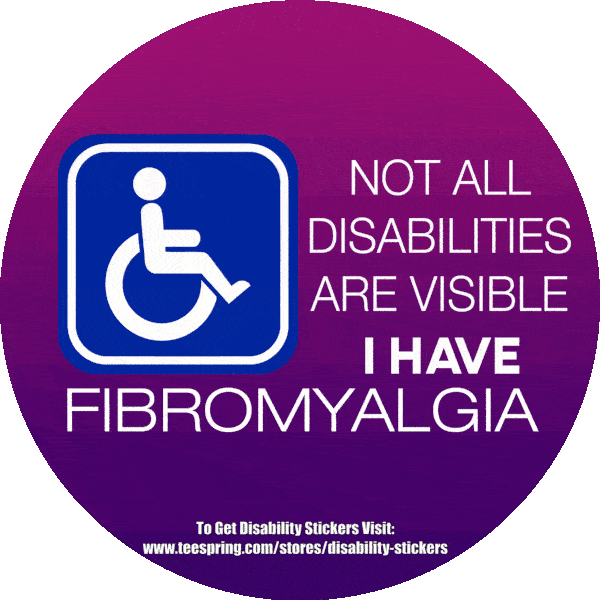From Early Symptoms to Disease Management
Fibromyalgia is a syndrome related to chronic arthritis. A syndrome is a collection of symptoms. If you are diagnosed that you are suffering from fibromyalgia you should know 10 facts about this disease.
1. Fibromyalgia is primarily characterized by widespread muscle pain and tenderness
Fibromyalgia is not responsible for muscle pain, inflammation and damage to other tissues, so it is not a joint disease, but it is related to arthritis. In 1990 the American college of Rheumatology established criteria to classify fibromyalgia for research studies.
>> There is history of widespread pain in all the 4 quadrants of the body, there is pain above the waist and on the both sides of the body and below the waist and on both sides of the body, for 3 months or more.
>> Pain at 11 of 18 tender sites.
2. Fibromyalgia can occur as a primary or secondary condition
Fibromyalgia can occur as by primary syndrome characterized by muscle pain, or secondary syndrome to other rheumatic diseases. It is possible to have both fibromyalgia syndrome and other rheumatic diseases.
Patients with rheumatoid arthritis, systemic lupus erythematosus, or ankylosing spondylitis are at increased risk of developing fibromyalgia syndrome. Those patients may wonder if they are suffering from symptoms common to both conditions (overlapping symptoms) or if they actually have both distinct conditions.
3. Fibromyalgia is often misunderstood and symptoms are often unrecognized, causing the syndrome to remain undiagnosed for months or years.
Fibromyalgia symptoms are often mixed and confused with other conditions. Fibromyalgia symptoms can overlap with other rheumatic diseases or even can mimic them.
According to National Fibromyalgia Association it almost takes 5 years to get the actual diagnosis of fibromyalgia.
4. 90 % of fibromyalgia patients suffer from fatigue or severe sleep disorder
Fatigue and sleep disorders are major characteristics associated with fibromyalgia. Therefore problems which develop due to poor sleep known as non-restorative sleep, are problematic as well( cognitive problems, memory lapses, lack of energy)
5. Fibromyalgia is associated with additional symptoms which seem distinct themselves but are actually included in fibromyalgia syndrome
Other than muscular pain, fatigue and tenderness, fibromyalgia patients also may experience:
>>Headaches
>>irritable bladder or bowel
>>memory problems
>>temporomandibular joints disorders
>>pelvic pain
>>noise sensitivity
>>temperature sensitivity
>>restless leg syndrome
>> depression
>> anxiety
6. There are physiological as well as physical aspects associated with fibromyalgia
In a study of 307 patients evaluated over an 11-year period (reported at an American College of Rheumatology meeting by Yunus and collegeagues) one-third of patients had several physical and psychological issues.
One-third had mild psychological and moderate physical issues. Another third had moderate psychological symptoms with mild physical symptoms.
7. Since there is no much variability in fibromyalgia, the syndrome does not manifest itself identically in all patients.
There may be sub types of fibromyalgia which may be discovered later as all the fibromyalgia patients do not show identical symptoms. This may also influence treatment choices. The variability of symptoms will remain a mystery until the cause is identified.
8. Diagnosis of fibromyalgia focuses on symptoms and tender points but there is no definite diagnostic test for fibromyalgia, such as blood test or X-ray.
The basis of fibromyalgia is symptoms which are presented and found during the examination. If diagnostic tests are prescribed then it is to find out more about other symptoms and to rule out other conditions.
9. Medication and non-medication treatments are used to manage fibromyalgia.
Medications are used to treat pain, improve sleep, and manage depression and anxiety. Based on symptoms presented your physician know what to prescribe. Alternative treatments that focus on pain relief and stress relief also benefit many fibromyalgia patients.
10. Fibromyalgia affect more women than men, the prevalence of fibromyalgia is between 2 to 4 percent of the population.
Even though the statistics have revealed the presence of fibromyalgia, but they do not reveal that how many people will survive with fibromyalgia and live a good quality life. It is important that you are diagnosed well and follow the treatment plan strictly that can lead to a good quality life despite your diagnosis.
-Dr. Muneeba Rana, MD MBBS, FUMDC.
Reference: | Reviewed by a board-certified physician via VeryWell
